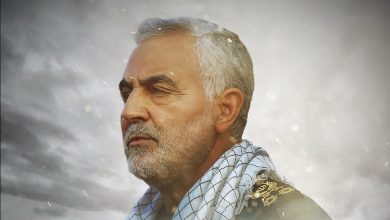Journey to the History of Tomorrow

 Dr. Seyed Mehdi Hosseini, PhD in Political Science
Dr. Seyed Mehdi Hosseini, PhD in Political Science
The establishment of a state founded upon the teachings of Islam was an unparalleled phenomenon in the modern history of the world—an event that unfolded in Iran through one of the greatest revolutions in human history.
Today, this monumental occurrence has become the target of toxic ideologies and corrosive narratives circulating within the digital space.
It appears that the foremost challenge facing the proud nation of Iran in the future will revolve around a fundamental question:
How can the emerging generation, in a digital world whose defining characteristic is its ethereal influence on everyday life, organize its political, economic, social, and cultural affairs?
The foundation of this question lies in the profound impact of the technological revolution in production and communication on the behavioral structure of the new generation.
The transformations that lie ahead demand a mode of reflection suited to the exigencies of our time.
Through the synthesis of sociological research and the presentation of clear intellectual guidelines, it becomes necessary to launch a train of engaged and insightful thinkers—those who bear genuine concern for the destiny of humankind—on a journey toward the history of tomorrow.
The driving engine of this train is the legacy of political thought, the wisdom of contemporary thinkers, and the steadfast motion upon the rails of political science.
The central theme and ultimate goal are to comprehend the nature of digital life and the discontent arising from its Janus-faced character within the laboratory of Islamic teachings.
The gradual emergence of the subtle yet profound effects of the technological revolution in production and communication upon culture and society—the social world—requires deep contemplation and intellectual reflection.
Observing the accelerating transformation unfolding in the grand patterns of contemporary life—marked by the de-totalization of everyday existence, the alteration of mental life’s substance, and the reshaping of political experience—one can foresee a highly challenging tomorrow.
On one hand, the gradual transformation of systems of needs and aspirations, coupled with the erosion of traditional totalities, will bring the conventional order of virtue into question.
On the other hand, the fading of gender stereotypes and the reconfiguration of the hierarchical system of values will diminish the spiritual cohesion of society.
To overcome certain influential crises in the history of tomorrow, which
Firstly, have their roots directly in digitalism,
and secondly, can be fundamentally shaped by the digital domain,
one must begin devising appropriate solutions now; tomorrow will be far too late.
The continuation of the “Haydari–Nemati debates and costly political–factional disputes” has influenced the political awareness and the way the new generation plays its role, and in numerous cases:
Solution: The scientific explanation and articulation of the internal logic of Iran’s glorious Islamic Revolution. When this monumental event is properly understood and the nuances, which are inseparable from the discourse of juristic political Islam, are presented in a language accessible to the new generation, it essentially becomes an antidote to the toxic words circulating on social media and a safeguard against the disintegration and evaporation of the “conventional system of virtue.”
It is clear that:
The technological innovations of the production and communications revolution, which the mind and spirit cannot fully comprehend, cannot be discovered merely with tools and mechanical instruments. Hence, theology has devised numerous methods and diverse approaches for guiding society based on the principles of governance, capable of mapping an exit from some of the complexities of the labyrinth of the digital age.
As Giorgio Agamben states in State of Exception:
“The strategy is ontological-theological-cognitive, aimed at capturing pure being in the net of the ‘Logos’.”
The Greek term Logos means both word and reason, and in the Quran, in Surah An-Nisa, Jesus [peace be upon him] is described as a messenger of God and the Word of God conveyed to Mary [peace be upon her].
Emphasis on this term is not merely a semantic exercise but refers to the complexities of a narrow passage through which the history of thought passes. Meanings are the thoughts within sentences, and thought itself is unlimited; to be comprehensible, it dons the tangible form of a sentence. Thus, every sentence expresses a thought, and the fundamental element of a sentence is the linguistic manifestation of thought.
Ahmad Khaleghi, in his book Power, Language, and Daily Life, explains the continuity of a dynamic and flourishing state based on religious teachings and its transmission to the history of tomorrow as follows:
“Thought must be examined in a tangible laboratory — language — so that individuals can adapt themselves within a specific social domain with proper functionality.”
In the pre-digital era, the standard for judging good and evil rested with the people, and mosques, prayer niches, and Imams acted as guides. Today, however, the digital pulpit plays a discordant tune, challenging many of the latent aspirations of the Iranian people. If these consequences are not considered by political scholars before society enters the history of tomorrow, the emerging generation’s minds may become detached from the experiences and teachings of the first government based on the Islamic-political discourse.
The qualitative transformation of power and its stability around religion and devotion to the Ahl al-Bayt [peace be upon them] in Iranian history and other Muslim countries was historically significant. Ahmad Khaleghi also emphasizes that analyzing thought and practical preparedness enables individuals to adapt themselves within social domains with appropriate functionality.
Yet, in the digital era, media charlatanism and the iron logic of digitalism can create a breach between religious power and its application in daily life, posing serious challenges for religious rulers in fulfilling the responsibilities of political theology. The epicenter of this challenge lies in Silicon Valley and the digital technology sphere, where the emerging generation must navigate complex AI infrastructures carefully while advancing toward the history of tomorrow.
In the digital era, media charlatanism and the iron logic of digitalism can create a breach between religious authority and its application in daily life, posing serious challenges for religious rulers in fulfilling the responsibilities of political theology. This situation becomes particularly dangerous as society enters the history of tomorrow, where the emerging generation must confront the consequences of digital transformations alongside the historical experiences of the first government based on Islamic-political discourse.
If these consequences are ignored, the minds of the new generation will drift away from valuable experiences and religious teachings, giving rise to dissatisfaction with the symbolic order. Therefore, it is essential for conscientious political scholars to provide a clear strategy, grounded in scientific analysis and the principles of political theology, to guide the new generation toward the history of tomorrow.
The main goal is to ensure the continuity of a dynamic and flourishing thought system for a government based on religious teachings, transferring this legacy to future generations so that individuals can adapt themselves within specific social domains and assume social responsibility in a dynamic and effective manner.







